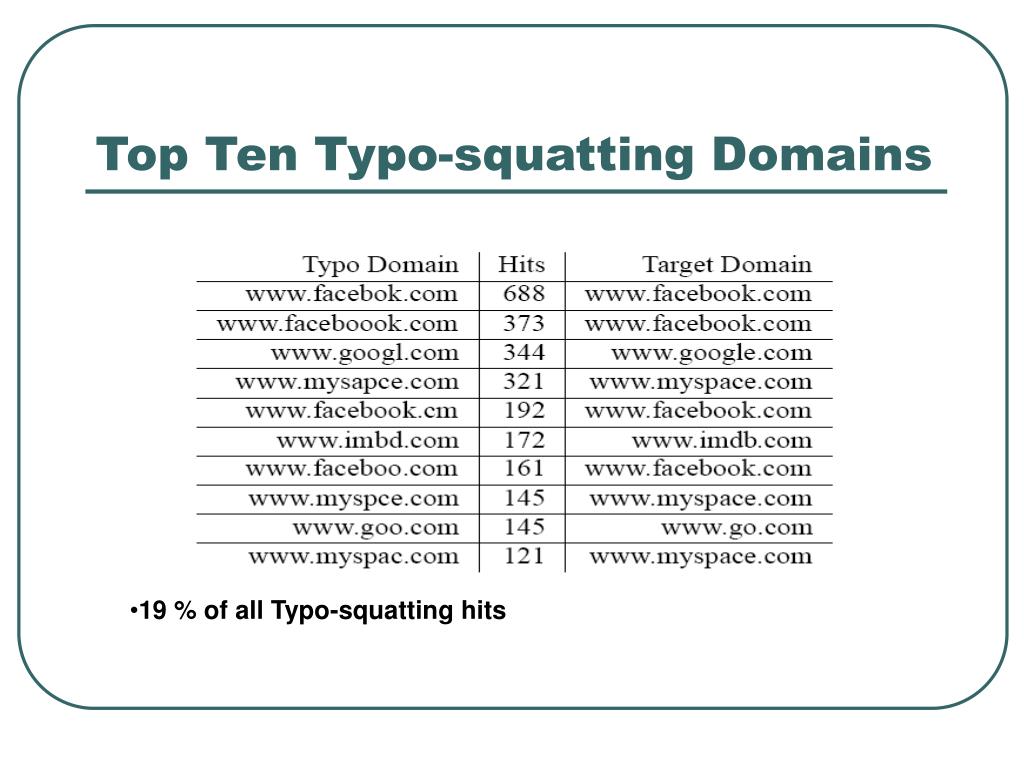

They want to earn clicks or views: Some squatters fill their misspelled domains with online ads. Bank of America could then use that misspelled domain to reroute typists - those who make that identical spelling error - to the bank’s real website. If they register, say,, they might hope that the actual Bank of America will purchase their domain. They want a big payday: Some typosquatters are looking for a quick payday. Why would anyone spend time creating a fake website with a URL that is deliberately misspelled? Typosquatters have plenty of reasons, including these. It's important, then, to check for typos when tapping out a website's URL. But other times you might land on a page that can cause serious damage to your computer, trick you into surrendering personal or financial information, or splash pornography across your screen. You'll just end up on a page advertising some other company's products or services. Sometimes these cases of URL hijacking are fairly harmless. If you type today, you’ll end up at a site that, as of September 2020, immediately asks visitors for their age and gender for what it claims is a presidential election survey.
TYPO SQUATTING INSTALL
Originally, this site attempted to install a fake security program on your computer, one filled with malware. How typosquatting worksĪlso known as URL hijacking, typosquatting is when someone - maybe a cybercriminal, hacker, or perhaps just someone hoping to advertise a product or service - registers a domain name that is an intentionally misspelled version of other popular websites.Ī famous example is the site, an address you might accidentally type when you want to perform a Google search. That's because you might become a victim of typosquatting.

Or, you might end up on a site that looks like your bank's webpage. Only when it asks for your password, username, and account number, you're sending this information directly to a cybercriminal.
TYPO SQUATTING SOFTWARE
But these errors might take you to a fraudulent site filled with malicious software that could instantly clog your computer.

You might think these misspellings or forgotten punctuation marks are no big deal. But you forget it when typing in its web address. Your favorite streaming site might have a hyphen in its name. Or maybe you type an "a" instead of an "e" when typing your bank's URL. org at the end of the site's address, you mistakenly type. It does not store any personal data.You're set to visit your favorite news site online. The cookie is set by the GDPR Cookie Consent plugin and is used to store whether or not user has consented to the use of cookies. The cookie is used to store the user consent for the cookies in the category "Performance". This cookie is set by GDPR Cookie Consent plugin. The cookie is used to store the user consent for the cookies in the category "Other.

The cookies is used to store the user consent for the cookies in the category "Necessary". The cookie is set by GDPR cookie consent to record the user consent for the cookies in the category "Functional". The cookie is used to store the user consent for the cookies in the category "Analytics". These cookies ensure basic functionalities and security features of the website, anonymously. Necessary cookies are absolutely essential for the website to function properly.


 0 kommentar(er)
0 kommentar(er)
